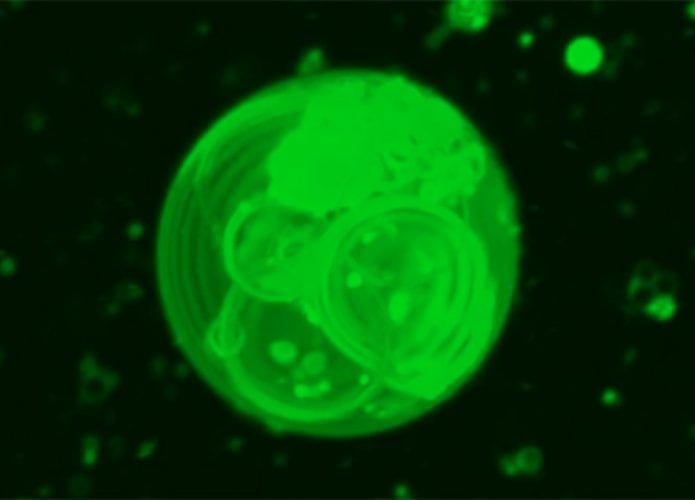The story of how life originated on Earth is still a bit uncertain, but a group of researchers may now have discovered how blobs of fat became the first cell membranes.
The study was recently published in Chemistry Led by researchers at Scripps Research Institute, chemical processes from 3.5 billion years ago are recreated in laboratories. Investigations revealed that phosphorylation may have occurred earlier than previously thought.
For those in a hurry:
- Protocells contributed to the formation of more complex biological structures on early Earth;
- In the study, the researchers evaluated how the phosphorylation reaction contributes to this process;
- By recreating the primordial terrestrial environment, it was possible to determine that the reaction occurred during the evolution of protocells.
The phosphorylation process consists of adding phosphorus atoms to molecules, giving them additional properties. In the case of life on Earth, this reaction transformed spherical clusters of lipids, known as protocells, into more stable, diverse, and chemically active molecules.
Read more:
Protocells and phospholipid membranes
These protocells are thought to have served as important building blocks for life, contributing to the formation of more complex biological structures. This discovery helps us better understand Earth's chemical environments and the origins of life.
In a statement, chemist Ramanarayanan Krishnamurthy of the Scripps Research Institute noted that the investigation into the occurrence of these processes in the initial stages of cell formation billions of years ago occurred because the process is so widespread in the biological functions of the body that it was thought that it could be related.
By replicating conditions that existed on early Earth, the researchers used fatty acids and glycerol to create more complex vesicles. By adjusting the temperature and acidity, it became possible to obtain the required chemical reactions. Thus, they were able to demonstrate that phosphorylation can occur as progenitor cells develop.
The vesicles were able to move from a fatty acid environment to a phospholipid environment during our experiments, suggesting that a similar chemical environment could have existed four billion years ago.
Sunil Politikurti, a chemist involved in the study
This is a plausible process for the formation of phospholipids, the most complex type of vesicular membrane, but there is still research to be done to truly determine the origin of life. However, this discovery shows how the first chemicals may have transformed Earth's environment suitable for life.

“Wannabe internet buff. Future teen idol. Hardcore zombie guru. Gamer. Avid creator. Entrepreneur. Bacon ninja.”

